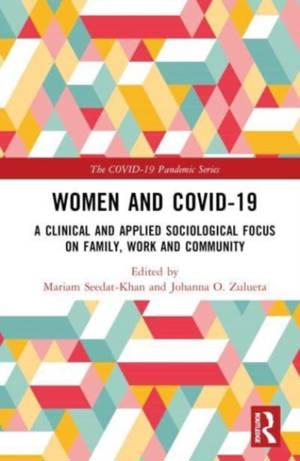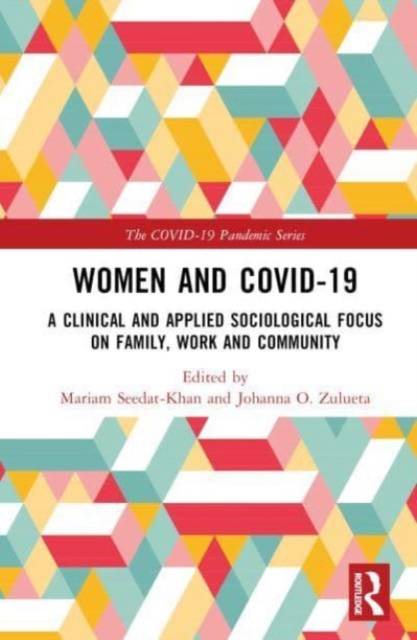
- Retrait gratuit dans votre magasin Club
- 7.000.000 titres dans notre catalogue
- Payer en toute sécurité
- Toujours un magasin près de chez vous
- Retrait gratuit dans votre magasin Club
- 7.000.000 titres dans notre catalogue
- Payer en toute sécurité
- Toujours un magasin près de chez vous
Women and COVID-19
A Clinical and Applied Sociological Focus on Family, Work and Community
Description
Women and COVID-19: A Clinical and Applied Sociological Focus on Family, Work and Community focuses on women's lived experiences amid the pandemic, emphasising migrant labourers, ethnic minorities, the poor and disenfranchised, the incarcerated, and victims of gender-based violence, to explore the impact of the pandemic on women.
The COVID-19 pandemic highlighted and exacerbated pervasive gender inequalities in homes, schools, and workplaces in the developed world and the Global South. Female workers, particularly those from poor or ethnic minority backgrounds, were often the first to lose their jobs amidst unprecedented layoffs and economic uncertainty. National lockdowns and widespread restrictions blurred the boundaries between work and home life and increased the burden of domestic work on women within patriarchal societies. This so-called 'new normal' in everyday life also exposed women to increased levels of gender-based violence and the likelihood of contracting COVID-19 due to overcrowding. This edited volume includes contributions from leading applied and clinical sociologists working and living in Asia, Africa, Europe, and the Americas and gives a global overview of the impact of the pandemic on women. Each chapter adopts an applied and clinical sociological approach in analysing gendered vulnerabilities. The volume innovatively uses personal accounts, including narratives, interviews, autoethnographies, and focus group discussions, to explore women's lived experiences during the pandemic.
This edited collection will greatly interest students, academics, and researchers in the humanities and social sciences with an interest in gender and the impact of the COVID-19 pandemic.
Spécifications
Parties prenantes
- Editeur:
Contenu
- Nombre de pages :
- 314
- Langue:
- Anglais
- Collection :
Caractéristiques
- EAN:
- 9781032211756
- Date de parution :
- 29-09-23
- Format:
- Livre relié
- Format numérique:
- Genaaid
- Dimensions :
- 156 mm x 234 mm
- Poids :
- 653 g






